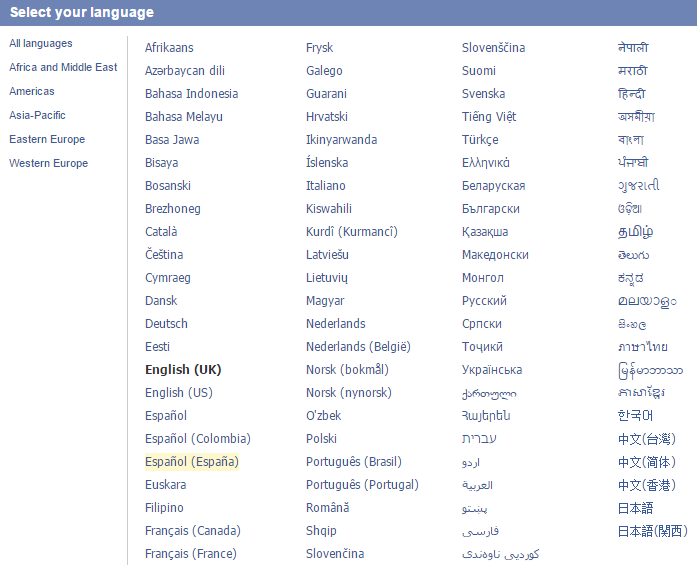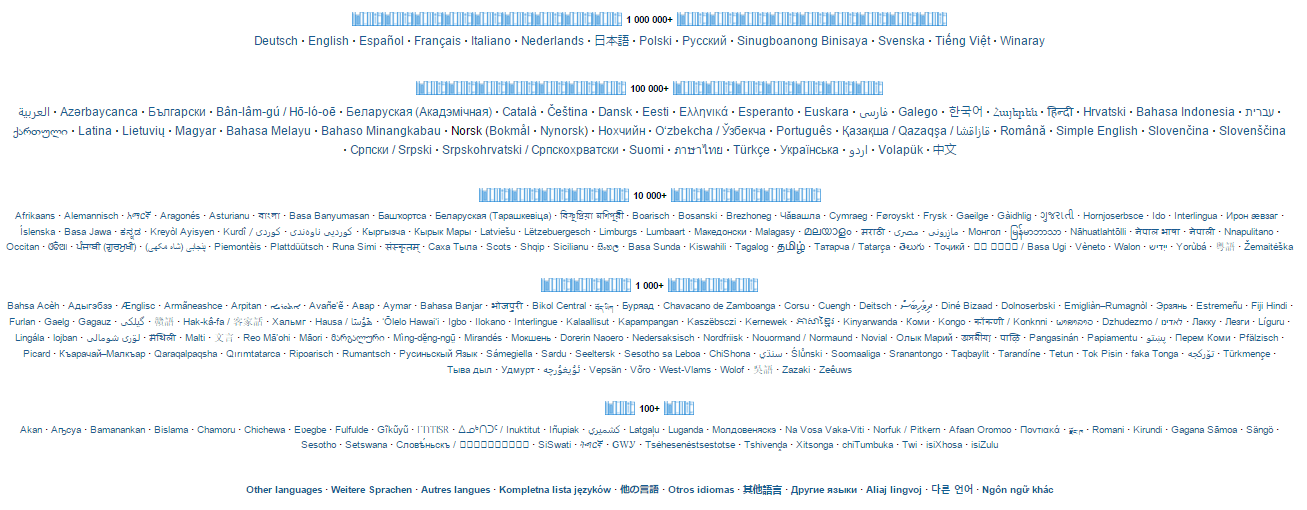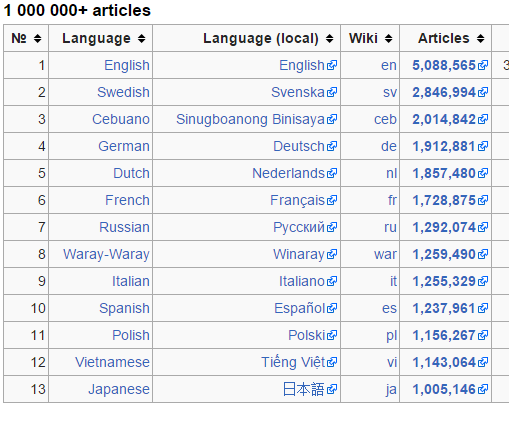Internet Language: A Language Blackhole
Since its release into public use on the 6th of August back in 1991, the internet has changed and moulded our way of living beyond anything its creator, Tim Berners-Lee, probably ever could have dared to imagine.
Today, you can shop, date, and even bully, if trolling’s your thing, online, all from the comfort of your own sofa wearing nothing but your pants if you so wish. Home is no longer where the heart is, but where the WiFi connects automatically, as the saying now goes.
That’s one cute internet troll via Flickr / Flickr
The internet has had an enormous impact on so many aspects of our lives, but what it has really transformed is our ability to communicate. To celebrate that, or to delve in a little deeper, over the next few weeks we will be taking a look at some of the most interesting language influences the internet has had.
This week we’re starting out with something a little inflammatory.
For the sake of argument, we would like to make the following statement:
The internet discriminates against languages that are not considered “popular.”
And that as a result, it has forced, or encouraged, if you prefer a different word, users the world over to learn English if not fluently, then at least sufficiently enough to be able to navigate our favourite sites.
Hear us out.
So firstly, what do we mean by “popular?” Depending on which source you refer to, those that are considered the most used languages on the internet is up for constant debate. Coming up in the top five regularly are Russian, Chinese, Spanish and French. As you would expect though, English tops every last list out there as the language used by more than half of all users in total. Which probably contributes to the somewhat misguided idea that English is the lingua franca, the most important and the most useful language to master.
Secondly, take a look at what is available on the internet in terms of language for yourself.
On the web
True, today on most social media sites at least, there are at minimum a few choices of languages available for you to view the sites in. Facebook leads the way, including Pirate as a language option choice, naturally, and Twitter is a close second for language options, with Tumblr coming up a disappointing last place in terms of what languages are offered.
According to the Ethnologue, there are thought to be around 7,105 living languages around the world, with writing systems for 3,570 of them. Even if we are generous and say that at the stem of these written languages there are only 46 alphabets to work with, suddenly the meagre choices we are presented with for online conversation are a laughably small amount. If you don’t feel up to doing any maths today, that works out to about 5% of the total number of languages out there being represented fairly on this supposed free-for-all equaliser that is the internet.
Learning a new language? Check out our free placement tests to see how your levels measure up!
Even everyone’s favourite website to love or hate, Wikipedia, only has a relatively short list of articles available in languages other than English. We are pretty sure there are millions of potential contributors out there, with both accurate and inaccurate information to provide, that can’t do so because there is no option to in their own language. Which we suppose is both a blessing and a curse, thinking about it.
Perhaps we’re getting a bit ahead of ourselves criticising what is actually available for us to use on the internet itself, and we should instead start with taking a look at the language choices our browsers give us to get online in the first place.
Browsing options
At the moment on Google Chrome for example, you can choose your browser settings from an impressively long list of language options. But, look closer:
|
Number of Versions of language |
Language |
| 2 | Spanish, Romanian, Kurdish |
| 3 | Portuguese, Norwegian, Italian, Chinese |
| 4 | French, English |
| 5 | German |
These multiple versions of the same language further reduce the number of what languages are actually available. And don’t get us started on how the majority of languages are those solely using the Latin alphabet.
How can the websites themselves stand a chance of getting their sites out there for other language users to use, when users have to cross this huge hurdle of browser language discrimination to even get to them in the first place?
It is interesting to note that the explosion that is emoji use and range on the internet has developed faster and reached further than some of the real languages we use to converse in online. Whether this is because the pictorial representation of a frowny face is easier to produce in lines of computer programming than a beautiful character from, for example, Urdu, is an argument that may be fair, but is not really a valid one given our continual technological advances.
Missing out
What happens when websites only provide information in their languages? Well, it creates a sort of online cultural bubble, with segregation caused simply because not all users have access to the same things. There is an enormous amount of information out there that is written entirely in Chinese, for example, and whilst apps like Google Translate do their best to help us, and most browsers now provide an automatic translation function, it is nowhere near as good as the real thing. Which means us non-Chinese speakers are likely missing out on some quality C-pop (Chinese pop music). You know, If that’s your thing.
Online shops including the most popular ones such as eBay and Amazon recognise not only the importance of localisation, but that shoppers prefer to shop in their native languages. But providing entire websites in numerous languages takes a lot of time and effort, and even more complicated is the decision of where exactly you start. Do you go for Spanish, because it is so widely-spoken globally? Or German, because you are a startup company and you know there is a potential market there for what you are selling?
This leaves non-English speakers out there, or those not already lucky enough to have the sites available in their countries, making a lot of educated guesses or relying heavily on translation tools when purchasing online.
So what is the solution?
The obvious one is probably involving that awful word, patience, and for us to wait for the technology - and developers - to catch up so we can access all our favourite things in our favourite virtual tongue. However, since we’re all about the language, how about using this language ‘black hole’ as an excuse to pick up some previously-unknown vocabulary?
Perhaps it is a little daunting thinking that the only way to use the internet is to learn an entirely new language, and we say that safe in the knowledge that those who already have command of English don’t really have to put in the slog and find out.
But consider this.
There are many downsides to not being able to use the internet freely, and by freely we don’t mean in a monetary sense. Imagine the discounts you miss out on because you can’t do online shopping, or the missed opportunities in business because your particular language isn’t really up to speed with e-commerce. Or that meme that you’ll never get to use because there’s no translation for it. You know, the important stuff.
The most important downside to us, as language lovers, is that without proper representation, the internet is contributing to the extinction of rare languages one character at a time. That is an upsetting thought, and we do not enjoy being upset .
Forgive us for our soapbox moment; language is like our Leonardo diCaprio, and we get upset when it takes forever for it to receive recognition!
Next week as we continue our look at internet language, we’ll be (hopefully) explaining some of our favourite internet slang. TTFN!








